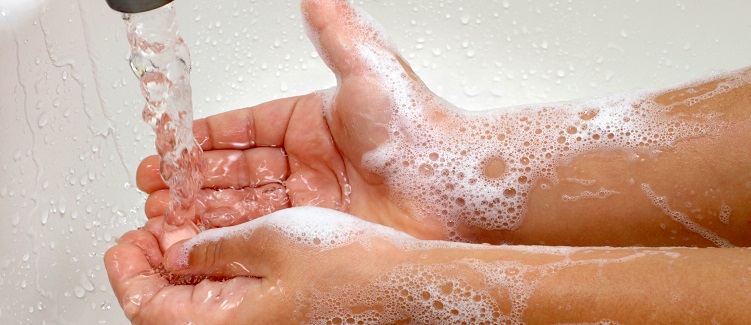You’re standing at the sink in a public restroom, and you have a choice: hand dryers or paper towels?
Hand dryers are thought to be more environmentally friendly than paper towels — the machines emit low greenhouse gases and don’t leave behind waste. But in public restrooms swarming with bacteria, do hand dryers really keep your hands clean?
RELATED: Why Do My Feet Smell?
Never Miss a Beat!
Subscribe to Our HealthBeat Newsletter!
Thank you for subscribing!
You can now select the specific newsletters you'd like to receive.
You are already subscribed.
Subscribe to more newsletters in our email preference center.
Sorry, an error occurred. Please try again later.
Get Healthy Tips Sent to Your Phone!
Hand Dryers or Paper Towels? Which Is Cleaner?
First, not all hand-washing is equal. Experts estimate that only 5 percent of people correctly wash their hands. Some people, for example, don’t use soap or don’t lather long enough.
But if hand-washing is done right, your drying method shouldn’t matter — thoroughly washed hands have no bacteria to spread. If you don’t completely wash your hands, however, bacteria may still be present when you’re ready to dry. And that’s when the difference between hand dryers and paper towels might matter.
- Hand dryers can blow bacteria from your hands into the air, spreading it to nearby surfaces and back to your body. One study at the University of Westminster claims that using hand dryers actually increases the presence of germs by 225 percent.
- Hand dryers blow warm air, which is conducive to bacterial growth.
- Paper towels, on the other hand, rub bacteria and water from your hands without spreading germs, generally making them the more hygienic option in a public restroom.
For places like hospitals and clinics where hygiene is very important, paper towels may be the better choice. This helps prevent contamination from residual bacteria. But by far the most important part of hand washing is using good technique.
RELATED: Germs in the Classroom
Proper Hand Washing Technique
There is a part to drying your hands that studies overlook — if you wash your hands correctly with soap and water, there should not be bacteria left to spread.
The television show “MythBusters” conducted an experiment to see if this was true, and found that the amount of bacteria from hand dryers or paper towels is comparable when they had washed correctly. When hands were not washed with soap and water, the bacteria on their hands multiplied.
In order to properly wash your hands, be sure to follow these steps:
- Turn on the faucet
- Lather up with soap from dispenser or bar
- Rub your hands together for twenty seconds
- Rinse under the faucet
- Dry your hands with a paper towel, hand dryer, or cloth towel
You can reduce the amount of bacteria you come in contact with by washing your hands thoroughly after you use the restroom and before and after you exit public areas.
Talk to your doctor about proper restroom hygiene. For more information, or to find a primary care doctors, visit www.UPMC.com/PCP or call 1-855-676-UPMCPCP.
About Primary Care
The relationship with a patient and their primary care doctor can be extremely valuable, and that’s what you get with UPMC Primary Care. When you work with a primary care physician (PCP), you develop a lasting relationship. Your doctor will get to know you and your history and can plan your treatments accordingly. Our PCPs offer a variety of services, including preventive care and treatment for both urgent and chronic conditions. With dozens of UPMC Primary Care locations across our network of care, you can find a PCP close to you. Schedule an appointment today.
